“Original” Films in Hollywood: Deconstructing the Backlash Against American Cinema
“Why are there no more original movies”? To be honest, asking this question is starting to get repetitive. Yet because nearly everyone on the internet keeps asking the same question, surely there must be legitimacy to the complaint. Whether it be an adaptation, sequel, remake, or reboot, many people feel the film industry’s only concern is to build upon franchises both new and old. Comic-based superheroes like Batman v Superman: Dawn of Justice, Deadpool, and Captain America: Civil War are popping up left and right every year with most being financial juggernauts. Film studios want to ride the success of Harry Potter and The Hunger Games, so they make their own films based on young adult books. When franchises like Rocky and Ghostbusters have assumably been laid to rest, film studios often go back to the same well. They either make sequels like Creed, or they reboot the series like with the upcoming Ghostbuster (2016). True, franchise recognition is in many ways the name of the game for Hollywood.
However, what if I were to tell you that not only are there plenty of original films being released each year, but more original films are being released now than ever before in film history?
It may sound crazy at first, but when looking over the landscape of Hollywood’s long history, there may be some legitimacy to this argument. It is certainly not the most popular opinion, but it is a legitimate question to ask in order to have an honest discussion about Hollywood’s future. Basically, this article will highlight major factors as to why the age of original films is more prominent now than ever.
Bigger Films Often Overshadow Smaller Films
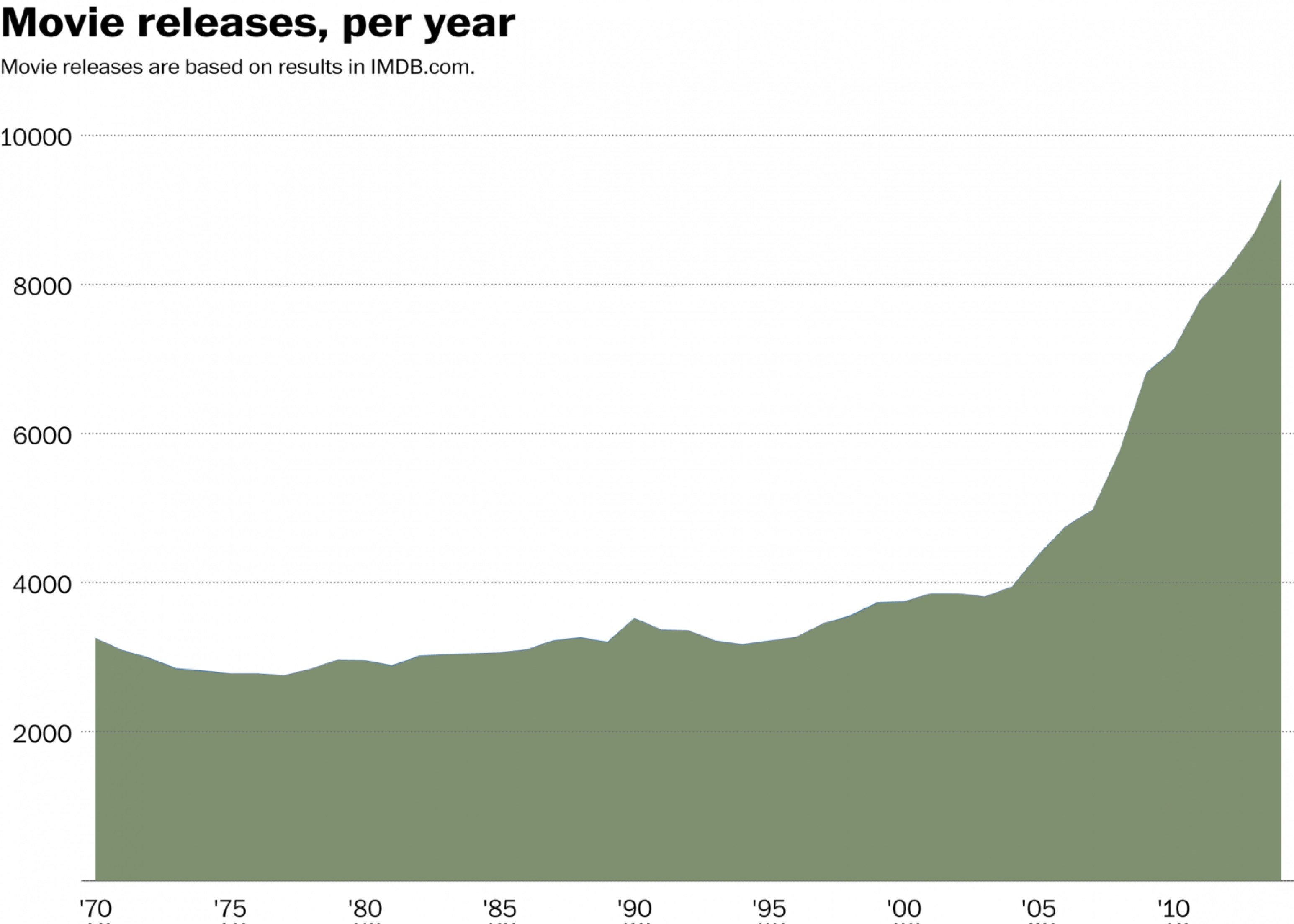
Filmgoers who feel original films are scarce often forget to consider the fact that three times as many films get released today than any other time in history. Last year, The Washington Post released a graph in one of their articles, showing how many films were released from 1970 to 2015. The number of films being released skyrocketed in 2005, which means more chances for both original films and films based on other properties to be released. With that said, films based on other properties do admittedly overshadow original films, but it not because Hollywood is anti-originality. Keep in mind that the average filmgoer sees 3-5 films a year, and they are most likely going to watch movies set in a pre-established series.
Remember, Hollywood is a business, and trying to market a stand-alone original film is tricky. Even when it comes to news stories, the average person is more interested in announcements about a comic book film or a sequel to a popular movie. What is going to be more popular in the news: announcing who will play Captain Marvel in the next Marvel movie, or announcing an actress to star in an original film people do not know anything about? Probably the Captain Marvel announcement. When looking at 2015 alone, there were plenty of original films released theatrically. The problem is that popular sequels like Jurassic World and book adaptations like The Hunger Games: Mockingjay Part 2 will resonate with audiences more. People simply have a hunger for film series they are already familiar with.
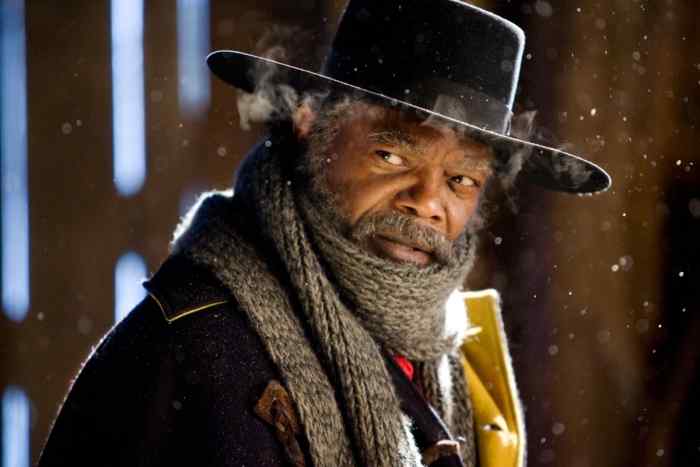
A Marvel Cinematic Universe film, for example, grabs filmgoers’ attention with pre-established characters, and the consistent rate of previous films being received well. An original film on the other hand only has the actors, director, and short glimpses of a story to propel the marketing forward. For example: Quentin Tarantino’s The Hateful Eight was another great film to add to his filmography, but it was in many ways overshadowed by the Star Wars: The Force Awakens when it came to the box-office. The marketing for The Hateful Eight did everything it could to present the films synopsis without spoiling anything, and to highlight the recognizable names of Samuel L. Jackson, Kurt Russell and Tarantino himself. Hollywood is not deliberately hiding original films like The Hateful Eight. It is just that when push came to shove, audiences went to see Star Wars: The Force Awakens multiple times.
However, the reconnection for original films has not been completely lost thanks to award shows like the Critics Choice Awards, the Golden Globes, and of course the Oscars. Films like Gravity, Birdman, The Artist, Whiplash, Selma and many more have been rightfully recognized for being masterfully made films. What is seemingly ironic about the criticism against the Oscars is how people online were outraged to see films like Captain America: The Winter Soldier and Dawn of the Planet of the Apes not be nominated for best picture in 2014. Here is the thing, The Oscars deliberately honor films that do not get enough recognition, and now people who complained about not having original films are upset because two sequels did not get nominated. These complaints seem very hypocritical, but it also highlights that just because a film is not completely original does not mean it is bad. This will be discussed further on in the article.
Have We Learned Nothing from Kurosawa?
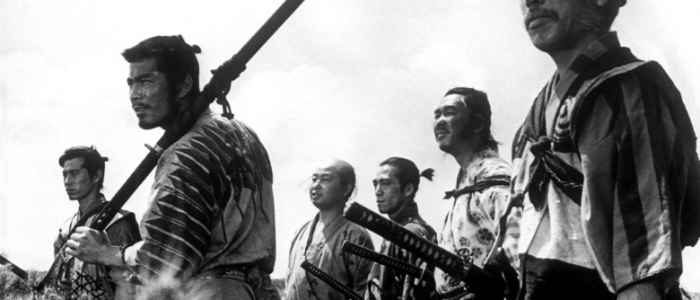
Instead of looking at originality from the context of sequels, adaptations, and remakes, let’s instead focus on originality from a storytelling perspective. What is frustrating about people complaining about unoriginality is that they often forget to consider what the word “original” really means. Some individuals, including film critics, often deem a movie bad because they can recall another movie with as similar pilot or story structure, therefore making it a “rip-off.” The problem is that people sometimes confuse a film “ripping off” another film with a film “paying homage” to another film. Akira Kurosawa, considered one of the most admired directors of all time, greatly used and inspired this kind of storytelling. While he was not a Hollywood director, his work was heavily inspired by Hollywood’s style of storytelling, and then future Hollywood directors were inspired by his work, almost like a continuous cycle. His film Throne of Blood was a retelling of Shakespeare’s Macbeth and Ran was a retelling of King Lear, but both of Kurosawa’s films are distinctively their own work of art.
What makes Kurosawa’s films iconic is how the context of his films are powerful, yet his plots are relativity simple. Seven Samurai can be summed up as a group of samurai defending a helpless village from bandits, but the context of the diminishing samurai culture in that time in Japan’s history is where the complexity of the film lies. With such simple stories, it is fascinating to see other directors use the same stories from Kurosawa’s work, while adding a different setting and theme for their films. Kurosawa’s Rashomon, a crime story told from multiple conflicting points of view, was retold into the crime western The Outrage. Yojimbo, the story of a samurai posing as a bodyguard for two conflicting gangs, gave inspiration to the famous spaghetti western A Fist Full of Dollars, and the crime thriller Last Man Standing. Seven Samurai has been retold many times with films like The Magnificent Seven, A Bug’s Life, and The Three Amigos.
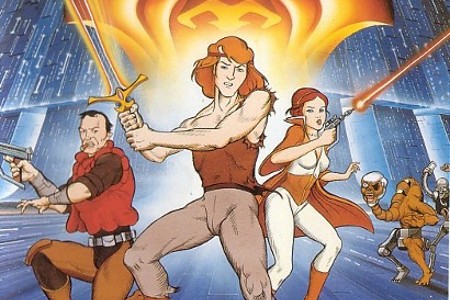
In more recent years, the art of retelling stories in film has often been misinterpreted by audiences. The Aardman claymation film Chicken Run, for instance, has been seen as too similar to the 50s thriller The Great Escape. However, Chicken Run included a scene where a chicken is bouncing a ball against a wall, which is a scene strait out of The Great Escape, meaning the animators were deliberately paying homage the cinematic classic and not stealing it. On top of that, they are both completely different genres, The Great Escape being a World War II drama about men escaping a Nazi camp while Chicken Run is a humorous children’s film about chickens escaping from an insane farmer. What stops these films from being rip-offs is that the filmmakers were not trying to capitalize off other popular films being released at the time. Films like Battle Beyond the Stars and Starchaser: The Legend of Orin are considered Star Wars rip-offs because they are science fiction films that borrowed many elements and plot threads from Star Wars. These films cared less about creating an exciting film, and only wanted to ride off the success off Star Wars’s hype.
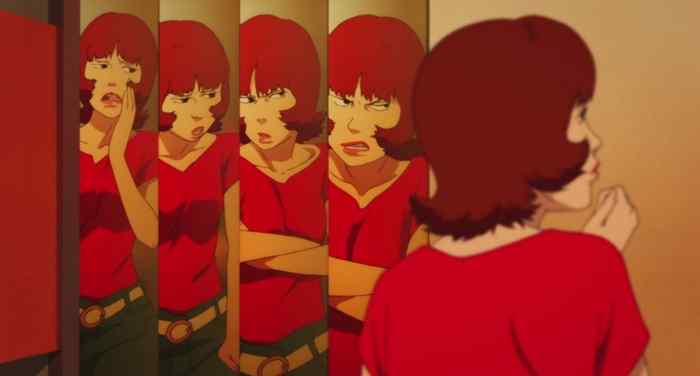
Then there are circumstances like Christopher Nolan’s Inception being called a rip-off of Satoshi Kon’s anime Paprika. Inception may have not payed any homage to Paprika, but it is not a rip-off. Why? Simply because the contexts of the films are very different, and that is an essential factor when determining originality or unoriginality. The theme of Paprika is about how a persons’ personality on the outside is often completely different from their dream personality, is which they can be whoever they want to be. The theme of Inception on the other hand is about how living in a dream for too long distorts reality and can prevent someone from moving forward in life. Both films used the concept of tapping into dreams to explore different aspects of the human psyche. Live-action films being unfairly blamed for ripping of other anime is nothing new. The Matrix shares similar aspects to Ghost in the Shell, and the same thing for Black Swan with another Satoshi Kon anime, Perfect Blue. To put it simply, anime has such a wide range of genres that finding similar aspects in live-action films is bound to happen eventually. With just so many stories being told through human history, no film can possibly be 100% original.
Sequels Can be Original Too
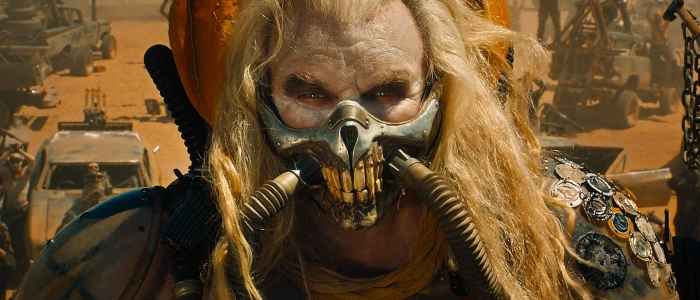
Here is an interesting question. Can some sequels be considered original? The oblivious response would be a definite “no,” but do not forget to consider what someone means by “original.” Max Max: Fury Road, for example, is the forth film in the Mad Max series and yet nearly every film critic has the film somewhere on their top ten 2015 movies list. Granted, Mad Max: Fury Road is another car chase action movie, very much like Mad Max 2: The Road Warrior, but it almost does not matter when taking into account the film’s profound storytelling. With a style all its own and a feminist message that is very powerful without being too preachy, Fury Road really is a film unlike any other. By that alone, Mad Max: Fury Road should be considered original for what it has contributed to cinema and its ever growing format. With the right script and director, some sequels can develop original stories and concepts.
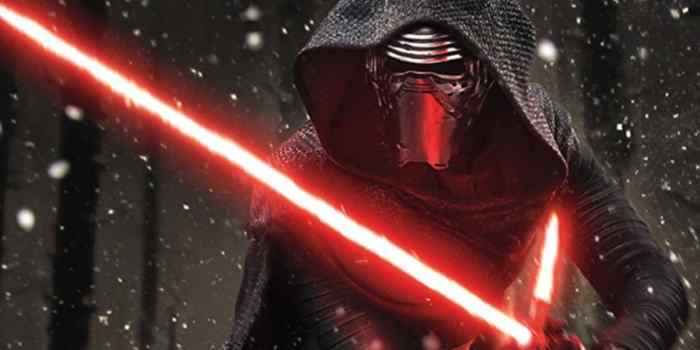
Sequels are often berated for borrowing too much from the first film, therefore making it bad. This is never more clear than with the critical reception on Star Wars: The Force Awakens and its huge similarities to Star Wars Episode IV. While some audiences saw the similarities as endearing, most others saw it as blatant pandering to the enormous fan base. Sequels do admittedly have the tendency to borrow heavily from there first films, and films series like the Hangover trilogy have suffered because of it. However, for a legendary franchise like Star Wars, borrowing elements from past installments should not be considered as repetition, but instead as a working formula.
Look at a series like the Back to the Future trilogy. Both sequels repeat similar aspects and plot points to the original, but by doing that, the whole trilogy felt complete. They all follow a similar formula, and the new twists like Back to the Future part 2 being set in the future and Back to the Future part 3 being set in the old west is what separates them from each entry. Compare this to the Star Wars trilogy. Even The Empire Strikes Back and Return of the Jedi were, at the time of their releases, also seen as very similar to the original, and look how those two turned out as time moved on. Star Wars: The Force Awakens does share similarities to Episode IV, but if anything, it is what makes it feel like Star Wars again, and thats all audiences really wanted.
Adaptations are Original in Their Own Special Way
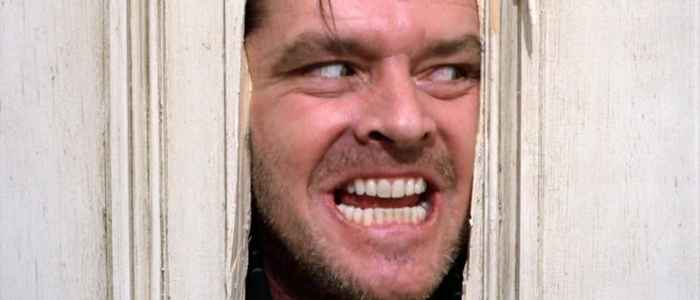
Film adaptations are unoriginal by nature because they are simply adapting a book, T.V show, or video game to the big screen. However, that does not mean film adaptations cannot invoke a new experience in a viewer. For adapting books especially, reading a story, in which the reader images the look of the world described to them, is completely different from having a visual experience like film. Take Stanley Kubrick’s adaptation of Stephen King’s horror novel, The Shining. The film may be an adaptation, but watching the film and reading the book invoke very different emotions. By changing some aspects from the book, Kubrick’s film uses eerie and traumatizing visuals to scare the audience as opposed to the books, which explained the scary visuals to the reader.
As much as fans cannot stand it when directors change aspects of their beloved book or TV series, film adaptations need to make changes in order for the film to stand on its own. In Gene Siskel & Roger Ebert’s review for the 1990 adaptation of Lord of the Flies, they both agree that making the film seemed pointless because it took no risks and adapted the book without giving it any new innovations. With this in mind, when fans complain about a film leaving out key aspects from book, one starts to wonder if the accuracy or inaccuracy actually speaks to the quality of the film. A filmmaker’s first priority when adapting a novel is to make the best film possible, and being completely faithful to the book is not entirely necessary.What a director should do when directing an adaptation is to at least pay respect to the original source material.
Fans hated the film Dragonball Evolution because the film clearly lost the charm seen in the original manga and anime. By dumbing-down the characters motivations and blatantly americanizing an anime very much rooted in Japanese culture, the film failed to please both fans and casual viewers. An adaptation mistreating the context and themes of its original is what makes a bad adaptation.
Are Biopics Original Films?
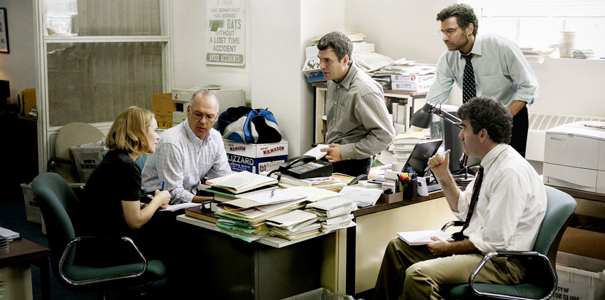
One of the biggest questions I kept pondering while writing is: can biopics be considered original films? On one hand, they are adapting a person’s life story, and being an adaptation technically makes it unoriginal. On the other hand, adapting a life story is very different from adapting a book, or TV series. While a lot of biopics are based off memoirs, or interviews of famous people, unlike a book, a writer and director need to find a seamless way to piece someone’s life story in a cohesive narrative. For example, The recent Tom McCarthy film Spotlight was not based on a single book, but multiple stories written by the Boston Globe team, meaning the writer and director needed to construct a three act structure based on what information they had. Citizen Kane, considered the greatest movie of all time, was moderately based on William Randolph Hearst, and yet no film aficionado would ever be caught dead saying Citizen Kane is unoriginal. So unless a film is a direct adaptation of a book or documentary, biopics can be considered original films.
Lets do Some Math
Even with all these discussions of what constitutes “originality” in films, people will still go around and say “Hollywood is so unoriginal.” Really! When looking at all 2015 film released nationwide, some may find it surprising just how many original films were released last year. Here is a list of all the theatrical released Hollywood films in 2015 that were not an adaptation, sequel, remake, or reboot.
The Wedding Ringer. Blackhat. The Boy Next Door. Black Sea. Strange Magic. Mortdecai. Project Almanac. Black and White. Jupiter Ascending. McFarland, USA. The Lazarus Effect. Focus. Unfinished Business. Chappie. Home. Get Hard. Ex Machina. Unfriended. Little Boy. The Age of Adaline. Hot Pursuit. Tomorrowland. Aloha. San Andres 3D. Spy. Inside Out. Dope. Max. Self/Less. The Gallows. Trainwreck. The Vatican Tapes. Southpaw. The Gift. Ricki and the Flash. Straight Outta Compton. Underdogs. American Ultra. No Escape. We Are Your Friends. The Visit. The Perfect Guy. Black Mass. Sicario. The Intern. Steve Jobs. Bridge of Spies. Crimson Peak. The Last Witch Hunter. Burnt. Our Brand is Crisis. Scouts Guide to the Zombie Apocalypse. The 33. The Night Before. Spotlight. The Good Dinosaur. Krampus. Sisters. Joy. Concussion. Daddy’s Home. The Hatful Eight. That is 62 original movies in total.
Now let us compare how many film based off other properties were released nationwide. In total there were 23 sequels, 28 adaptations, 3 remakes, and 4 reboots. In total, that adds up to 58 films. It turns out that there were more original films released last year than all the sequels, adaptations, remakes and reboots combined. Hollywood does not look so unoriginal when looking at these numbers. Some of the films like Inside Out, Spy, and Ex Machina were critically acclaimed while others like Jupiter Ascending, Aloha, and We Are Your Friends were box-office bombs. This brings up the last and final point of this article.
Originality Has Nothing to do With Quality
There is somewhat of a misconception floating around the internet that mediocrity in Hollywood films will disappear if there were more original films and originals stories being told. The problem with this mentality is that the Hollywood system cannot build a foundation off nothing but original films. What would it be like if Hollywood made fewer sequels, adaptations, or remakes each year? Eventually, audiences are going to miss seeing some of their favorite books adapted on the big screen, or further explorations into worlds with sequels. Audiences like having familiarity in their movies, and that should not be seen as a bad thing. Granted, Hollywood will, in some cases, squeeze a franchise dry even if nobody is asking for more movies; the Die Hard and Paranormal Activity franchises often come to mind. However, just because a couple of sequels and adaptations are unsatisfying does not mean the whole genre of sequels and adaptations need to be thrown into the same pot. That does a disservice to all the beloved sequels and adaptations.
So what about from a story telling angle? As previously said, so many stories have been told throughout time that obviously any film nowadays cannot really be called completely original. That is inevitably true, but the problem is that some people can take this the wrong way. Some see it as Hollywood writers not trying hard enough to conceptualize original ideas, yet once again, Hollywood cannot base a foundation on a mindset that is entirely pessimistic. There are no magical writers out in the world that can make a completely original film script with a snap of a finger, so why are present Hollywood writes blamed for that exact reason? Is the original Star Wars unwatchable because it borrows elements from Kurosawa’s The Hidden Fortress? Of course not, because originality does not make or break a film’s quality.
While some films are bad because their plot points and characterizations have been done to death in other films, repetition is different from originality. Instead of judging a film from how original the story is, it might be better to judge what a film adds to a familiar story and how it goes off into a different direction. Part of the reason original films seem scarce is because a lot original films in Hollywood have very standard and somewhat average cinematography. Films like Blackhat and Ricki and the Flash are original film, but without memorable cinematography, they do not feel original because they blend in with so many other bland looking films. The Hollywood system may not be perfect in every aspect, but original films are, in actuality, one of Hollywood’s strongest aspects.
Work Cited
Bump, Philip. “Of the Thousands of Films Each Year, Oscar and Globe Voters Always Agree on the Three or Four Best.” Of the Thousands of Films Each Year, Oscar and Globe Voters Always Agree on the Three or Four Best. Washington Post, 15 Jan. 2015. Web. 14 Jan. 2016.
“Domestic Movie Theatrical Market Summary 1995 to 2016.” The Numbers – Movie Market Summary 1995 to 2016. The Numbers. Web. 14 Jan. 2016.
Vick, Tom. Asian Cinema: A Field Guide. New York, NY: Smithsonian Institution, 2007. 37-86. Print.
“2015 Movies – Released In 2015.” 2015 Movies – Released In 2015. Movie Insider. Web. 27 Jan. 2016.
Kinnear, Simon. “50 Great Movies Accused Of Being Rip-Offs.” 50 Great Movies Accused Of Being Rip-Offs. Gamesradar, 30 July 2012. Web. 21 Jan. 2016.
Stuckmann, Chris. “The Force Awakens and Star Wars Formula – Analyzed Movie Review.” The Force Awakens and Star Wars Formula – Analyzed Movie Review. Youtube, 10 Jan. 2016. Web. 23 Jan. 2016.
Eckman-Lawn, Alex. “6 Major Cases of Hollywood Ripping off Anime (and One Huge Counter-Example).” 6 Major Cases of Hollywood Ripping off Anime (and One Huge Counter-Example). The Robot’s Voice, 6 Nov. 2013. Web. 2016.
What do you think? Leave a comment.











It’s not the sequels that piss me off – it’s the Americanisation of decent non-English language films that irk the hell out of me. Sequels can sometimes surpass the original in terms of storyline – a good example? Whilst Alien is a stellar piece of cinema history, it really got a boost with the fantastic Aliens, and whilst The Terminator is brilliantly vicious, it was surpassed by Terminator 2. The problem in sequels is when it goes beyond the idea of “sequel” and into the realm of “Franchise”. Example? The first three Star Wars films and those godawful prequels. Not all franchises are awful, but a lot of them just reek of opportunism.
Critics have never liked the popular films of the day.
Hollywood survives and the studios continue make films that the rest of the world wants to see. It has always been thus. Hollywood is ruled by the market, and the people running the industry are sophisticated enough to change with the times. It’s the money generated from blockbusters that allow smaller independent films to be made.
We’ve got so used to the moving image (TV and now the web) it no longer has the emotional force that it once had.
I find it sad that there seem to have been more film masterpieces made during virtually ‘any’ decade from the 20s to the 60s of the 20th century than there have been in the whole of the 21st century (OK, it’s early days).
In those days, when film was a new art form, its creators were continually experimenting. With form, production, story-telling, editing, the lot. Now so much is just formulaic.
The ‘rules’ have been laid down, the technique ‘refined’. The creators go through the motions and churn out yet more copies of copies of copies. And an industry ever more dependent on bottom lines and audience figures has little room for uncontrollable genii – those that push and push, often fail but sometimes hit a spot which has never been hit before.
The reduction of film from a shared, spectacular experience (in the cinema, on a big screen) to its more solitary reduced consumption (on the TV or, even worse, on the ‘smart phone’ or computer) hasn’t helped either.
I hope I’m wrong, and film has yet to reach its peak, but….
Great article!!!
I like the way you state these points. I am not a big fan of Hollywood, but more for other reasons than originality, though it is somewhat tied. I like how you add other films from outside Hollywood, like Paprika, to the mix to make your point and it can definitely be argued that adaptations are original too, in their own nice way. I frequently try to make that same point.
Excellent article. I have a professor who told the class he had a friend who hated The Witch because the friend thought it lacked originality, and my professor stated that he didn’t think that was a good reason. And it’s not because, as you point out, most works are derivative in some manner. Nothing exists in a vacuum. Throne of Blood is a compelling retelling of Macbeth, and the story of Macbeth itself is loosely based on a real king. Shakespeare’s narratives were heavily borrowed from older tales and history, yet I wouldn’t call him a hack or unoriginal due to the perspective he implemented while composing his dramas.
I completely agree with you. No one would dare call Shakespeare an unoriginal storyteller, even though he too had inspiration for his works.
We happily read books in series without moaning that it’s a sequel to a previous novel. Just sayin…
The medium has become incestuous and formulaic.
Lets not forget that The Matrix was a total phenomenon. That was the case of a big studio taking a risk on some weird punks and risking that the public would like such efforts. Job done. That is what Hollywood should be about.
Some Hollywood films can be total genius, but it cannot write the scripts – only talented scriptwriters can.
Citizen Kane was a commercial failure but is regarded as a classic today.
The nearest arthouse cinema is about an hour away my friends.
I’d like to see Shawshank Redemption 2. Mexican authorities are notified of Andy Dufresne’s presence in their country and deport him for trial back in the US.
Meanwhile Red also goes back into the clink for violating the terms of his parole. This time they’re in a lower-security prison though and hilarity ensues when Jack Black is the prison warden and Stifler from American Pie is the prison rapist.
It is easy to blame the system, but the ideas have to be there.
The American audience want to be entertained.
Studios make films to make money. Luckily, the quality is really mint nowadays.
There is an audience for everything and anything but studios are businesses, there to make money. Rejecting everything Hollywood is far too smug an attitude for anyone who enjoys movies. If it entertains I am pleased. If it does not I don’t take it personally.
Completely agree with this article.
Original movies do get noticed, but they also have to be good, and marketed well enough to grab the easily distracted publics attention.
This. Look at the Raid / Raid 2, American Hustle, ExMachina, Rush (ok biopic kinda), It Follows, A most violent year, Mud, Nightcrawler, Grand Budapest Hotel, Under the Skin, Only Lovers left Alive…of course Indie flicks have a hard time against the blockbuster garbage, but there is a hungry audience for real cinema, even movies that have a mainstream flirtation, but don’t blame the market for a substandard product.
Most modern hollywood films used to be just dross and tripe but I kind of like what’s been produced lately.
There’s a whole host of great movies being made outside that production line.
Yes there are too many sequels, reboots, etc, the studios are reluctant to make original films for fear they will lose money and the general movie going public are equally as reluctant to see original films that aren’t based on something they already know about.
All of this remake and re-boot stuff is targeted at people who have replaced their music collection five times in five different formats but haven’t bought new music since they were twenty. I for one have gotten tired of the way American studios make movies. It’s the old “Wild Bunch” crap over and over with better graphics and excessively morbid depictions of gratuitous violence. Car chase, explosion, car chance, shooting, a bit of jiggle to make it interesting, and back to the car chase. Yes, very creative..
Its the one thing I never look to for ‘originality’ (whatever that is ) or deep thought…its entertainment. The trouble is all the crap that goes with the productions. The stars are bigger than the content more than ever – and a lot of them are rubbish. The writers hardly have a say in what is put out there…remakes have been an ongoing thing from the ‘golden age’ of cinema – when they were rehashing good hollywood movies in to movie musicals. Its just got way out of hand and the industry is in such a dire state that they cant afford to take chances anymore…
That’s what independent cinema is there for.
Have just heard there is going to be a new “the Mummy” with Tom Cruise?? Really??
I have to be honest. A lot of my favourite films are adaptations of novels. Sad but true. However this does not mean cinema should rest of the works of others but should strive toward originality!
Nice one, but I do feel this is one side of the story. Originality or unoriginality can be found in any movie, indeed, and this shows when it is relevant. Personally, I still think Hollywood is not original enough, because I define originality in another way, and btw also because half of their movies are ‘original’, whether it’s a small difference with the unoriginal ones or not, that’s not much.
I find that usually the bigger films with the big names are often compensating for the fact that the script and just general plot have no body or proper development
Very little of the profit motive in the film industry if any is explored here. I would like to see an analysis that includes a survey of studio heads and that answers questions related to how decisions get made related to what films get green lighted and what films do not. If you want to discuss originality, start there.
I feel like too many are putting in their viewpoint rather than commenting on the piece itself. This was well-researched, and I enjoyed your views on biopics as original films.
I honestly would never have thought of looking at modern Hollywood this way. I too have been saying that they don’t seem to have new ideas and are making way too many sequels/remakes. But this shed some new light on the matter for me. It’s also surprising to know that far more movies are coming out today, especially when compared to decades past. Maybe marketing is partly to blame why lots of us are convinced 95% or movies today are sequels or remakes. Publicity for sequels and remakes must be overshadowing adverts for more individual movies. It also probably doesn’t help that so many of us are morbidly curious to see how bad or good the sequels/remakes are due to nostalgia for the original product. And of course the more money these get, the more Hollywood will be shelling them out.
Very well said. Thanks for reading 🙂
At least we still have indie cinema to give fresh ideas a little love.
The movie Fight Club was almost exactly the same as the pamphlet, er, book.
It is true that superhero films like The Avengers, Iron Man, Iron Man 3, Thor, Guardians of The Galaxy, The Dark Knight, Suicide Squad and many other modern superhero films are tool for studios to cash-in on already-established source material but it’s unfair to call these films bad and testaments/proof of Hollywood laziness just because it’s unoriginal. It’s takes a lot of brainstorming and risk taking to create a well-crafted film to introduce characters like Iron Man or Thor. It takes hectic planning to select which parts of comic book story-lines that can be shown on screen and which parts that cannot. Writers still have to crafted the story based on numerous comic book story-lines for the film and sometimes invent a new stories/origin stories for the characters and it also take careful planning to cast suitable actors for each characters.
Same stories for other film based on established franchises. Film like Jurassic World, Furious 7, Minions and many other sequels of already established franchises are sometimes contain an original story played by already established characters inside already established universe. The universe and characters might be already famous, but the story itself is sometimes original. I myself think that the story of Furious 7 and Minions to be more “original” compare to the story of an ‘original’ film Secret Life of Pets.
If Furious 7 was made in 1990s, then it will be an original action movie about planning and executing a rescue mission using cars dropped from plane.
If The Avenger was made in 1990s, then it will be an original superhero movie about forming a superhero team and have them saving New York from alien invasion.
If Monster University was made in 1990s/ early 2000s, then it will be an original movie about awkward daily life of monsters studying in university.
If Finding Dory was made in 1990s/ early 2000s, then it will be an original film about an amnesiac fish trying to find her mom.
If Men in Black 3 was made in 1990s, then it will be a film about an agent who travels to the past to save his partner.
etc…
Writers who make original films are not dead. Many of them right now are crafting original stories, just like they did in 1990s or early 2000s, but those stories are contained within a universe inside a franchise that have already famous either from comic book, tv series or previous movies and those stories are played by characters within those universe.
Right now, the market wanted to treat film like a long term relationship similar to comic book, tv series or book series rather than a one night stand like before so expanding the film universe is what studios can do right now. Those sequels can sometimes devout more time for actions and dramas because they don’t have to devout a huge part of the movies for character developments.
Great read. I particularly liked the section that discussed The Force Awakens vs. A New Hope “controversy.”
As someone who neglected to see the original trilogy after being forced to sit through The Phantom Menace as a young child, I had a unique and what I presume to be a very uncommon reaction to The Force Awakens. In many ways, it WAS my New Hope and was my incentive to give the originals a watch. Nowadays, so many people get caught up in the repeated story threads and the similar character traits that they forget about what a truly magical and emotional experience great re-tellings of classic stories can impart to new viewers. There is a reason this story gets retold again and again. It is timeless. It is one of our modern myths, not to mention an important precursor to modern Sci-Fi storytelling, special effects, etc.
The Force Awakens was not only a “return to form” for the Star Wars franchise, but an assertion of the cyclical nature of mythology, human experience, and human fallibility. We go on making the same mistakes, learning the same lessons, enjoying the same “unoriginal” stories despite our own personal circumstances because at its core, the human experience is not very original. That is one of the reasons we have stories, to help us make sense of the common feelings and events we can share or relate to as human beings.
It is like you said: no story is completely “original.” I believe this is because if it were ever possible to make a story that was 100% “original,” it would no longer be relatable. And if a story is not relatable, or better yet recognizable, to me or any other human being, then what is the purpose of telling it?
“Originality Has Nothing to do With Quality” too true, unfortunately. The two have become disconnected in the studio production formula. Originality given the resources to be quality work would be a refreshing change of course. Instead, challenging work often does not have the backing that is given to publicity driving but derivitive or name-dropping productions. So we get movies like The Hateful Eight, where the budget is used up in hype and we are left with a play on 70mm film, and flat performances from actors capable of so much more.
I can relate to the Star Wars franchise overshadowing many films like the Hateful Eight, the funny thing is that I only recently watched the latter because it was downplayed when it first was released. I am glad I rectified this because it is an amazing film and one of my favourites to date.
The issue lies not with the ability of the creators to bring forth their originality in story telling but with the control of film making process going back to the studios from the directors.
When Kubrick, Cameroon, Spielberg, De Palma, Coppola, Lucas, Scott, Scorsese broke into the scene, they wrested the control from the studios based on their might in the box office and their ability to be stars in their own right.
The next generation of directors barring Tarantino and Nolan have failed to do the same effectively giving up the control directors had on the content. The studios, being business houses, resorted to going to sequels for safe money rather as they should instead of worrying about originality.
Good point on Oscar recognizing these films to make sure they do not die.
most of Hollywood films can be total genius i think
what a surprise a liberal defending liberal hollywoods bullcrap – uh no im not listening to your “lets change the subject to something logical related to the problem like hmmmmm OH I GOT IT! more movies being made now somehow makes up for hollywood raping old movies” – they need to stop recreating everything and its as simple as that – 2019 movies include Aladdin,mulan,the lion king, and dumbo – if you actually have an article defending this you should kill your liberal ass self
Frankly, I think that re-makes/re-boots of older classic films generally come out really awful. I see Steve Spielberg’s re-boot of the 1961 film version of “West Side Story” being no exception to that, either.
Pardon me for coming down so hard on the idea of a re-boot of such a great, golden oldie but keeper of a classic movie-musical such as “West Side Story”, but this movie is what it is–and it should be left alone, entirely. “West Side Story”, imho, is far too beautiful, special and electrifying in every way to justify a re-boot of this great film by anybody, including Spielberg.
It sounds like film franchises have an easier time in marketing, and thus, are the ones being pushed out more.